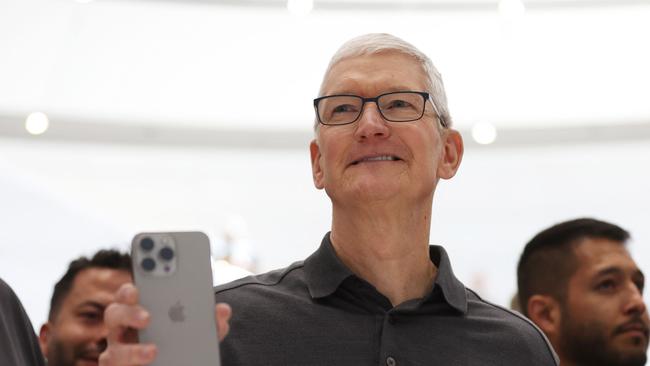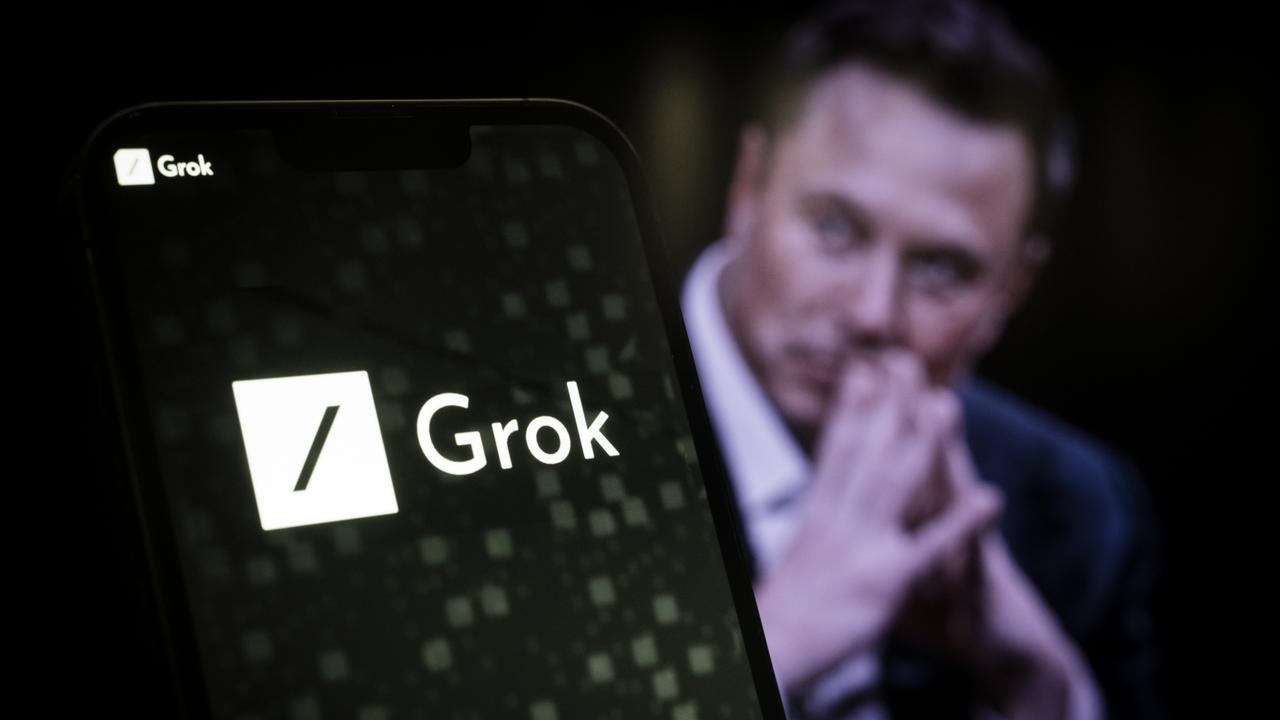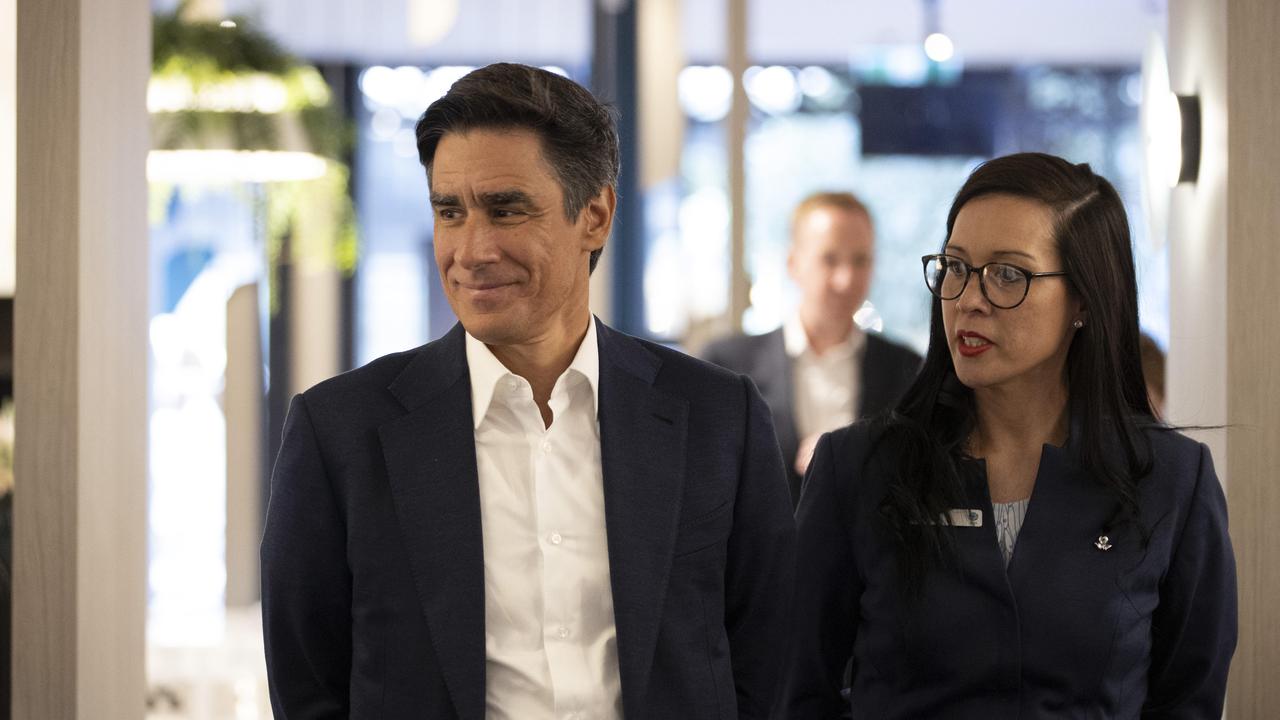Smartphones prices to soar more than 30pc, Apple reveals $1.4bn tariff hit
Donald Trump’s trade war is expected to cost Apple $1.4bn in the next three months as an influential technology group warns the prices of smartphones and other devices are set to soar.

Business
Don't miss out on the headlines from Business. Followed categories will be added to My News.
Smartphone prices are set to soar more than 30 per cent, an influential technology group warns, as Apple says that it expects Donald Trump’s trade war to cost it $US900m ($1.4bn) this quarter after it has already wiped more than $US350bn off its market value.
The Consumer Technology Association – the organisers of CES, the world’s biggest consumer electronics trade show in Las Vegas – is forecasting the price of smartphones to surge 31 per cent and laptops and tablets to increase 34 per cent, based on new modelling.
Drawing on data from Trade Partnership Worldwide, the updated analysis suggests that American consumers face a potential drop in purchasing power of up to $US123bn annually if current and announced new tariffs take effect and are fully passed through to retail prices.
For every $US1 in gains to domestic producers, consumers may lose up to $US16 in spending power.
The research also revealed economic losses could reach as much as $US69bn annually, even after accounting for potential reshoring and new domestic production.
Consumer Technology Association chief executive Gary Shapiro says “tariffs are taxes paid by Americans”.
“Higher tariffs don’t just affect businesses, start-ups and founders — they’re a pocketbook issue for American families, potentially raising the cost of the tech Americans love and rely on daily. While this Administration is rightly focused on jobs, data shows these tariffs are more likely to hurt industry and add to inflation, rather than help Main Street America thrive,” he said.

Apple CEO Tim Cook is aiming to cushion the blow, shifting the assembly of iPhones, iPads and other products bound for the US from China – which has been hit with a 145 per cent tariff – to India and Vietnam where import taxes are lower.
“The existing tariffs that apply to Apple today are based on the product’s country of origin,” Mr Cook said.
“For the June quarter, we do expect the majority of iPhones sold in the US will have India as their country of origin and Vietnam to be the country of origin for almost all iPad, Mac, Apple Watch, and AirPods products sold in the US. China would continue to be the country of origin for the vast majority of total product sales outside the US.
“We will manage the company the way we always have, with thoughtful and deliberate decisions, with a focus on investing for the long term, and with dedication to innovation and the possibilities it creates.”
For the past two years, Apple has either cut or frozen the price of its products amid a cost of living crisis and to stimulate demand for its biggest earner, the iPhone. It largely bases its global pricing on US pricing, like most other consumer electronics companies.

Since Mr Trump ignited his global trade war, Mr Cook has been rushing to diversify Apple’s reliance on China – where its contracts employ 3 million people – as the trade war wipes more than $US350bn off Apple’s market value.
Deloitte Australian lead partner of telecommunications, media and technology Peter Corbett said if Apple didn’t diversify more of its supply chain away from China, it could lift the price of an iPhone in Australia to $4000.
Mr Cook said it was difficult to “precisely estimate” how much the tariffs will cost the company this quarter, “as we are uncertain of potential future actions prior to the end of the quarter”.
“However, for some colour, assuming the current global tariff rates, policies and applications do not change for the balance of the quarter and no new tariffs are added, we estimate the impact to add $US900m to our costs.
But Ben Reitzes, head of technology research at Melius, questioned whether it be much more than $US900m.
“ I’m surprised that it’s that low. Could it be a multiple of that figure, or is it just completely unknown? We’re all just trying to figure out what happens after June,” he said.
Mr Cook said he “did not want to predict the future”, citing an ongoing Section 232 investigation, which Mr Trump has launched to investigate imports that threaten US national security.
“Obviously, we’re very engaged on the tariff discussions. We believe in engagement, and we’ll continue to engage. On the pricing piece, we have nothing to announce.
“We have a complex supply chain. There’s always risk in the supply chain. What we learned some time ago was that having everything in one location had too much risk with it.
“And so we have, over time, with certain parts of the supply chain, not the whole thing, but certain parts of it opened up new sources of supply. And you could see that kind of thing continuing in the future.”
Originally published as Smartphones prices to soar more than 30pc, Apple reveals $1.4bn tariff hit



